Initial results of the adult-use pilot project in Zurich (called Züri Can) have been made available to the public. In March of last year, the first people were able to start the enrolment process for the study. From August 2023, study participants could legally purchase cannabis at their local dispensary.
Points of purchase
Study participants can legally purchase THC cannabis flower or cannabis resin from one of a total of 21 supply points. What is special about this study is that three different types of supply points are being investigated:
Ten pharmacies are active as purchase points in Zurich. The employees of the pharmacies have a great deal of expertise concerning health advice. Another point of purchase is the Drug Information Center (DIZ) of the city of Zurich, which, as a competence center for the promotion of low-risk recreational drug use, has many years of experience and knowledge in the prevention and counseling of cannabis. The Züri Can study is the only pilot project with cannabis in Switzerland that also has ten cannabis social clubs. These are run as non-profit associations and generally offer the opportunity to consume cannabis on-site with other study participants and to exchange ideas with each other. The social clubs also organize social activities for their members.
Demography
A total of 2100 people can take part in the Züri Can study. Currently, 1928 people are enrolled in the study and authorized to purchase cannabis. Significantly more men than women or non-binary people are taking part in the Züri Can study. This gender distribution was to be expected. After all, in a Switzerland-wide online survey conducted at the end of 2016 with 3132 regular cannabis users, the proportion of men was 80.5% and the proportion of women 19.5% (Müller et al., 2023). In other pilot projects in Switzerland, there is a similar gender distribution among the study participants. 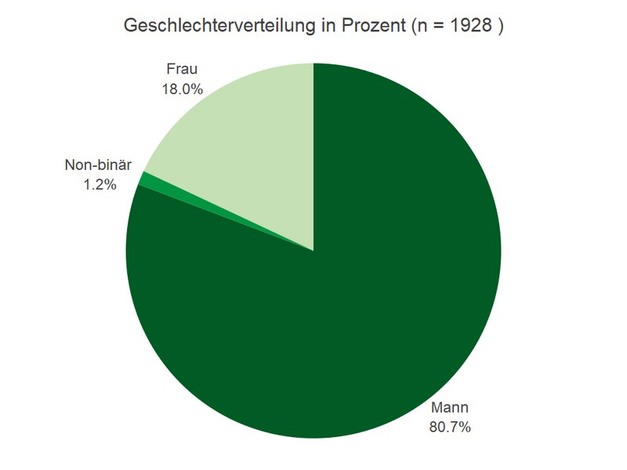
The age group of 28 to 32-year-old participants is currently most frequently represented in the Züri Can study. Nevertheless, it can be seen that a broad age spectrum is taking part in the study. The average age is around 35 years. The average age is slightly higher than in the 2016 nationwide online survey, where the average age was 30.5 years (Müller et al., 2023). In other pilot projects, a similar age distribution was found among the study participants as in the Züri Can study.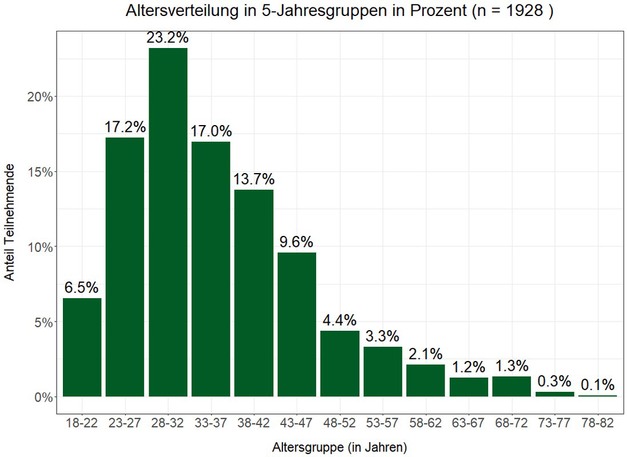
Frequency of use
The majority of study participants use cannabis four times a week or more. Participation in the study appears to be particularly attractive for people with frequent use. Nevertheless, people who only use cannabis a few times a month also take part in the study. This will allow them to compare people with different consumption habits in the study. The figure below shows an overview of the frequency of use of the participants in the six months before they were able to obtain study cannabis.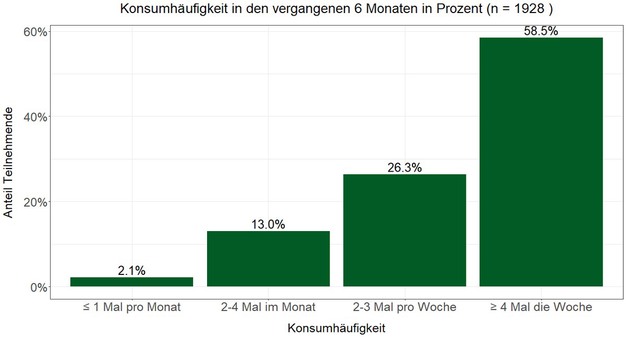
Cannabis use disorder
As with other substances with intoxicating effects, such as alcohol, not every person who uses cannabis has a problematic use. Many people who use cannabis do so without serious health or social consequences (Marmet & Gmel, 2017). However, some users may develop a cannabis use disorder (CUD), as defined by the Diagnostic and Statistical Manual of Mental Disorders (DSM 5). A cannabis use disorder is present when there is a strong desire to use cannabis (so-called "craving"), even if there are already harmful consequences (Hoch & Gantner, 2019). Tolerance to the effects, reduced ability to control consumption, neglect of other pleasures, or withdrawal symptoms when stopping the substance (e.g., mood swings, restlessness, heavy sweating) can also occur. Between 10 and 30% of those who regularly use cannabis are affected (Leung et al., 2020). A cannabis use disorder is associated with an increased risk of health and social problems (Hall et al., 2016; Leung et al., 2020).
Around a quarter of the participants in the Züri Can study had indications of a cannabis use disorder before they had access to the study's cannabis. This is recorded using a screening questionnaire developed for this purpose, the so-called Cannabis Use Disorder Identification Test (CUDIT) (Adamson et al., 2010), which indicates a cannabis use disorder if the total score is 13 or more points (Annaheim et al., 2010). In other studies, researchers also found similar figures for the frequency of cannabis use disorder in people who regularly use cannabis (Leung et al., 2020; Marmet & Gmel, 2017).
The regulated distribution of cannabis can create a framework that promotes lower-risk cannabis use. In particular, cannabis users who exhibit problematic consumption are given easier access to counseling and treatment services, e.g., through the contact persons for the study's doctors. The sales staff at the points of purchase were specially trained concerning the promotion of counseling and prevention so that individual, targeted counseling is possible. As study participants always buy their study cannabis from the same supply point, a closer relationship of trust can develop over time, in which problematic developments can also be recognized and discussed.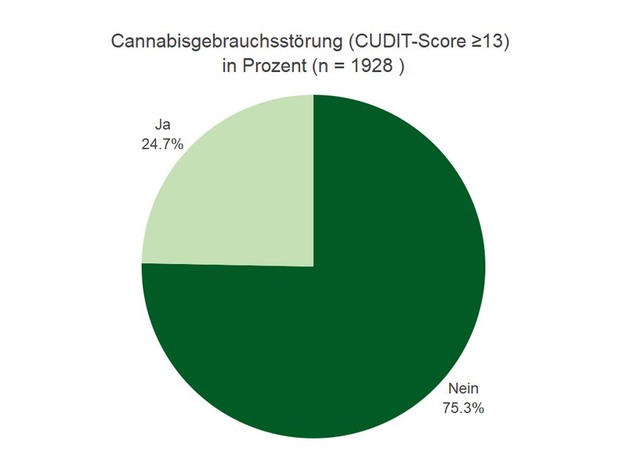
Sales
The study's cannabis is purchased directly from the producers by the supply centers. The products offered, and their prices are the same at all supply points and are specified by the study management. The range of study cannabis includes various products, both cannabis flowers and hashish products. There are legal requirements to ensure the high quality of the products. For example, the cultivation methods must comply with agricultural practices for medicinal plants and be of Swiss organic quality.
Since the start of sales, five different cannabis products with different THC/CBD contents and different genotypes have been on offer. These include three flower products and two hash products. In December 2023, the range of study cannabis expanded to nine different products, of which five are flower products and four are hash products.
So far, all products have been requested by the study participants. A total of approx. 16,500 sales were made, in which a total of approx. 140 kg of cannabis products in 5-gram packs were sold (equivalent to 28,000 packs).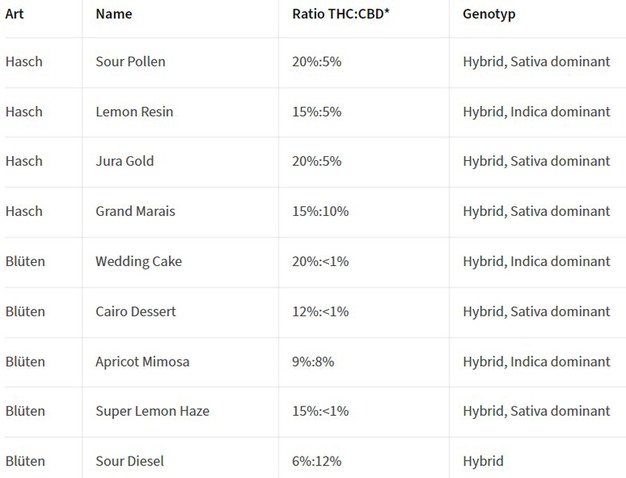
Source: www.zurican.uzh.ch
